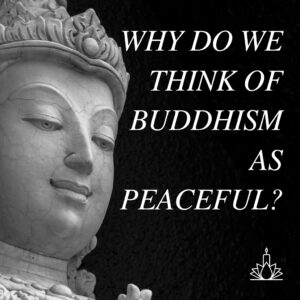The Buddha’s Eightfold Path, far from being a rigid set of rules, is a flexible and practical guide to living a life of wisdom, ethics, and mindfulness. It’s a roadmap to liberation, a path towards ending suffering, and a cornerstone of Buddhist practice. As outlined by resources like phathoc247.com, understanding and integrating these principles is crucial for anyone seeking a deeper understanding of Buddhism and its profound teachings.
1. Right Understanding (Samma Ditthi)
Right Understanding forms the foundation of the Eightfold Path. It’s about comprehending the Four Noble Truths – the reality of suffering (dukkha), its origin (samudaya), its cessation (nirodha), and the path to its cessation (magga). This isn’t just intellectual understanding; it’s a deep, visceral grasp of the interconnectedness of all things and the impermanent nature of reality. It involves understanding karma, rebirth, and the possibility of liberation from the cycle of suffering.
- Understanding the Four Noble Truths
- Grasping the concept of dependent origination (Pratītyasamutpāda)
- Recognizing the impermanence (anicca), unsatisfactoriness (dukkha), and non-self (anatta) of all phenomena
2. Right Thought (Samma Sankappa)
Right Thought cultivates a mental state free from harmful intentions. It’s about fostering thoughts of loving-kindness (metta), compassion (karuna), sympathetic joy (mudita), and equanimity (upekkha). It involves letting go of greed, hatred, and delusion, replacing them with wholesome and ethical motivations.
- Cultivating loving-kindness towards oneself and others
- Developing compassion for all beings
- Rejecting harmful thoughts like greed, hatred, and delusion
- Promoting wholesome thoughts focused on peace and well-being
3. Right Speech (Samma Vaca)
Right Speech is about communicating ethically and truthfully. It involves abstaining from lying, gossip, harsh language, and idle chatter. The emphasis is on speaking in a way that benefits others and contributes to harmony and understanding.
- Speaking truthfully and honestly
- Avoiding gossip and slander
- Refrain from harsh or abusive language
- Speaking kindly and compassionately
- Using words that promote peace and understanding
4. Right Action (Samma Kammanta)
Right Action focuses on ethical conduct in daily life. It adheres to the five precepts: abstaining from killing, stealing, sexual misconduct, lying, and intoxicants. It extends beyond simply avoiding harmful actions to proactively engaging in virtuous conduct.
- Abstaining from killing
- Abstaining from stealing
- Abstaining from sexual misconduct
- Abstaining from lying
- Abstaining from intoxicants
- Engaging in actions that benefit others
5. Right Livelihood (Samma Ajiva)
Right Livelihood involves earning a living in a way that aligns with ethical principles. This means avoiding occupations that harm others, such as dealing in weapons, intoxicants, or exploiting others. It emphasizes earning a living through honest and ethical means.
- Avoiding occupations that harm others
- Earning a living through honest and ethical means
- Seeking employment that contributes to the well-being of society
6. Right Effort (Samma Vayama)
Right Effort focuses on cultivating wholesome states of mind and abandoning unwholesome ones. It involves diligently working to develop positive qualities like loving-kindness and wisdom, while actively abandoning negative qualities like greed and hatred. This is a continuous process of self-improvement and spiritual growth.
- Cultivating wholesome states of mind
- Abandoning unwholesome states of mind
- Maintaining mindfulness and awareness
- Developing perseverance and dedication to spiritual practice
7. Right Mindfulness (Samma Sati)
Right Mindfulness involves paying attention to the present moment without judgment. It’s about cultivating awareness of one’s thoughts, feelings, sensations, and actions as they arise, without getting carried away by them. This cultivates a state of equanimity and clarity.
- Paying attention to the present moment
- Observing thoughts, feelings, and sensations without judgment
- Cultivating awareness of body and mind
- Developing clear and unbiased perception
8. Right Concentration (Samma Samadhi)
Right Concentration refers to the cultivation of focused attention and mental stability. Through meditation practices, one develops the ability to calm the mind and access deeper states of concentration, leading to increased wisdom, insight, and clarity. This is often achieved through practices like mindfulness meditation or Samatha-vipassana.
- Developing focused attention
- Cultivating mental stability
- Practicing meditation to calm the mind
- Accessing deeper states of concentration
- Developing insight and wisdom through meditative practice
The Eightfold Path isn’t a linear progression, but rather an interconnected and interdependent system. Each element supports and reinforces the others, creating a holistic approach to spiritual development and liberation from suffering. By diligently practicing the Eightfold Path, individuals can cultivate wisdom, ethical conduct, and mental discipline, leading them towards a life of peace, fulfillment, and enlightenment.
